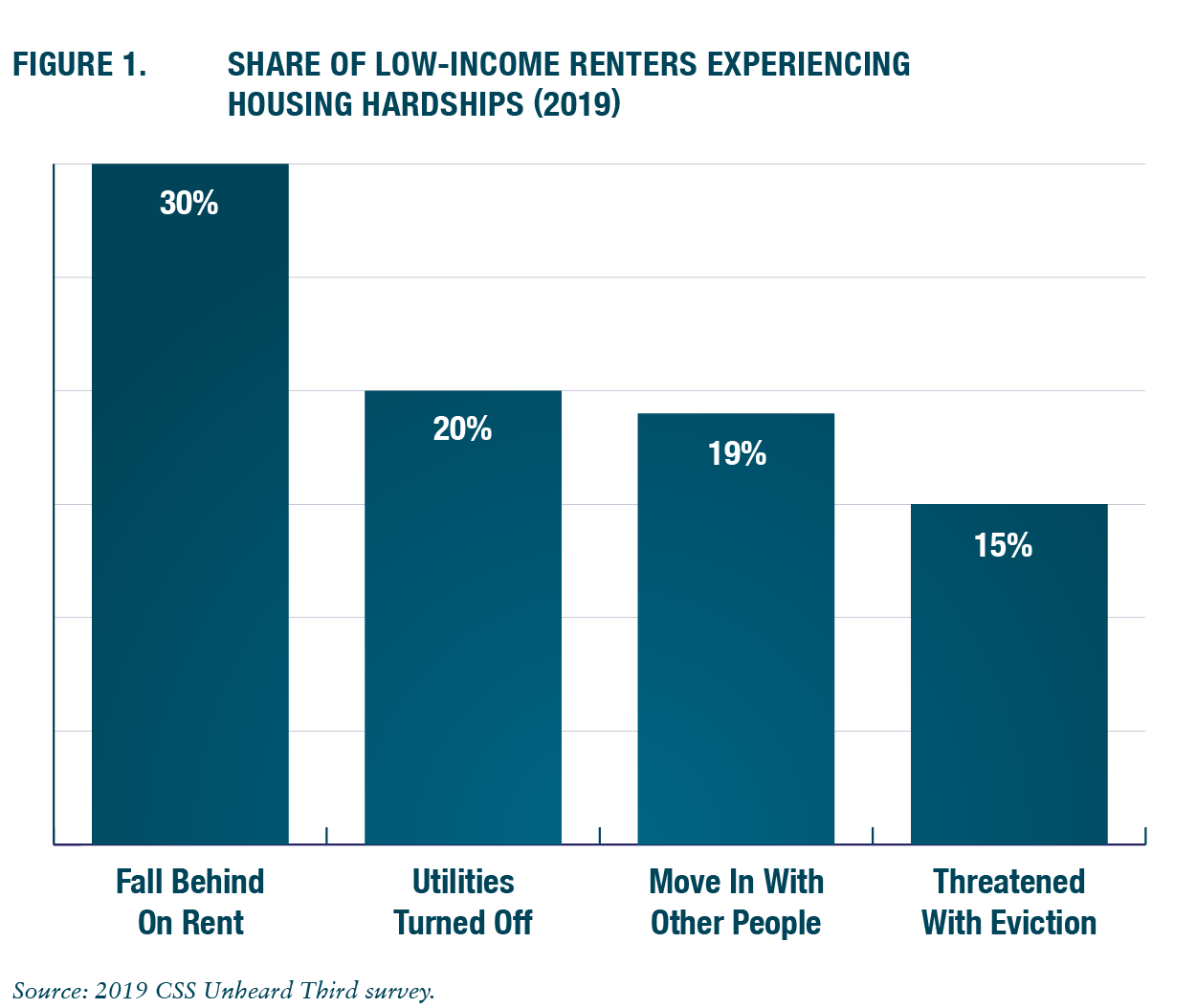Testimony: A Housing Response to COVID-19
Oksana Mironova
City Council Committee on Housing & Buildings and the Committee on Consumer Affairs
Remote Hearing - April 28, 2020
My name is Oksana Mironova and I am a housing policy analyst with the Community Service Society of New York. Thank you for the opportunity to present comments on the COVID-19 Relief Package, as it pertains to tenants.
The pandemic has intensified the city’s ongoing housing crisis, already a daily reality for four in ten low-income New Yorkers who are homeless or housing insecure. Before March 2020, many low-income New Yorkers were spending a substantial portion of their earnings on rent. For example, our research has shown that the median rent to income ratio for low-income rent stabilized households bypassed the severe rent burden threshold, increasing from 40 percent in 2002 to 52 percent in 2017.
After decades of climbing housing costs, low-income renters were already experiencing high rates of housing hardships. In 2019, 30 percent fell behind on rent, 20 percent had utilities shut off, 19 percent had to move in with other people, and 15 percent were threatened with an eviction.
It is therefore unsurprising that many renters have been unable to save money. The vast majority of low-income renters–70 percent–had less than $1000 in savings for an emergency, like an unexpected loss of income or a hospitalization. Further, there are major disparities in savings by race among renters across all incomes. Sixty three percent of black renters and 60 percent of Latinx renters report having less than $1,000 in savings, as compared to 43 percent of Asian renters and 41 percent of white renters. This is in line with national research, which points to a broadening racial wealth gap across all socioeconomic levels. Most black and Latinx renters, and the vast majority of low-income renters do not have one months’ worth of rent in savings. And, the sudden onset of the pandemic has disproportionately impacted these communities.
The pandemic not only created an impossible situation for New Yorkers who were already homeless or housing insecure, but is now bringing many others closer to the edge. Our research has showed that more than 126,000 low- and moderate-income renters in the private market have minimal savings and have lost much or all of their income as of late March. This number will increase dramatically in May.
Expanded unemployment insurance—covering more workers, with higher weekly benefits–will help some, but will leave out important segments of the New York City workforce, like undocumented workers. The stimulus check will offer some reprieve as well, but is a one-time payment that also excludes undocumented New Yorkers. In the short term, delays in unemployment insurance claims processing have been a huge problem, because many renters lack savings to get by, even for even a few weeks.
New York State has a 90-day eviction moratorium in place, set to expire in mid-June. First, we need to extend the moratorium, because we know that the economic effects of the pandemic will be with us for a long time. We support Intro 1912, which would pause evictions until September 2020 for all tenants, and until April 2021 for those directly impacted by the pandemic. We also support Intro 1936, which would amend the definition of harassment in the Housing Maintenance Code to include COVID-19 status – no one should be discriminated against because they got sick.
Second, we need some sort of rent relief that is universally available and easily accessible to anyone impacted by COVID-19, especially undocumented New Yorkers. Without it, we are going to see a major spike in evictions whenever the moratorium is lifted.
Looking toward the long term, we need to expand right to counsel to give more tenants a fighting chance in housing court. Further, we need to develop programs that allow mission-driven nonprofit developers, or tenants themselves, to acquire properties that will come up for sale, or go into foreclosure in the wake of the pandemic. This could include laws that give tenants, nonprofits, or the city the right of first refusal, paired with targeted funding to support acquisition.
Thank you for the opportunity to provide comments on the COVID-19 Relief Package. If you have any questions, you can reach me at omironova@cssny.org.
